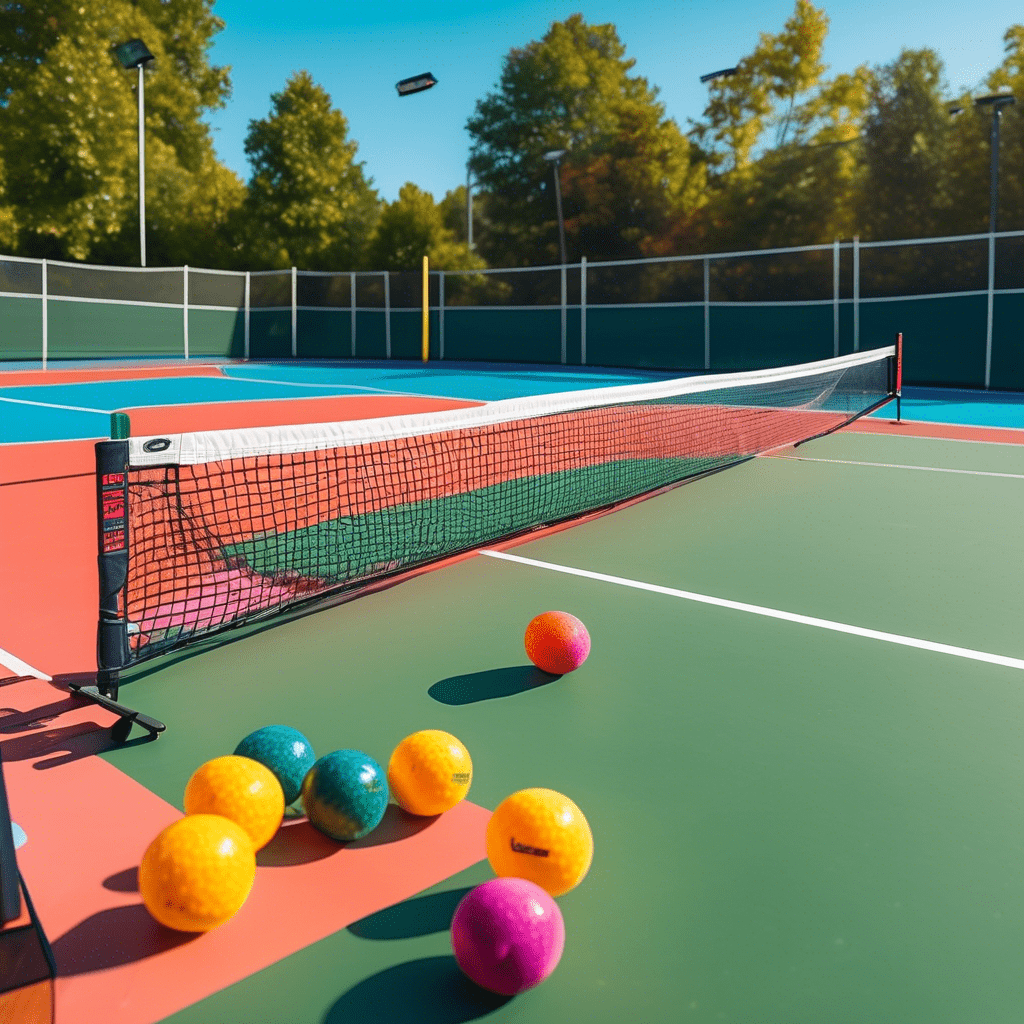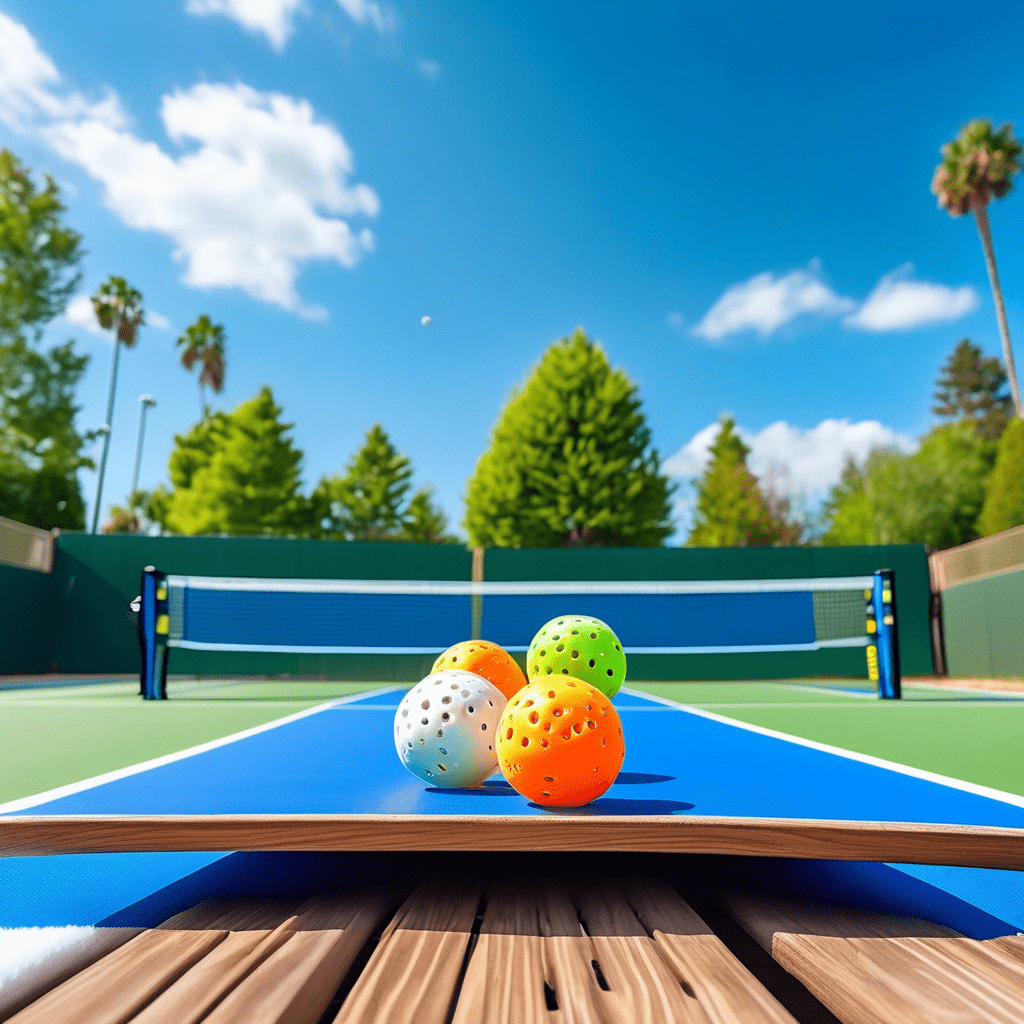The Rise of Pickle Ball Leagues: Joining the Fun and Competition
Pickle ball has taken the sports world by storm, and with its growing popularity, pickle ball leagues are popping up everywhere. Whether you’re a seasoned player looking for some friendly competition or a newcomer eager to dive into the sport, joining a pickle ball league can be an exciting and rewarding experience. In this comprehensive guide, we’ll explore everything you need to know about pickle ball leagues, from their benefits to how to get started.
If you’re new to the sport and wondering how to play pickle ball, don’t worry – we’ve got you covered. Let’s dive into the world of pickle ball leagues and discover why they’re becoming such a hit among players of all ages and skill levels.
What is a Pickle Ball League?
A pickle ball league is an organized group of players who compete against each other in regular matches or tournaments. These leagues can vary in structure, from casual weekly meet-ups to more formal competitions with rankings and playoffs. The primary goal of a pickle ball league is to provide a structured environment for players to enjoy the sport, improve their skills, and socialize with fellow enthusiasts.
Leagues can be found in various settings, including:
- Community centers
- Parks and recreation departments
- Private clubs
- Retirement communities
- Fitness centers
Many leagues cater to different skill levels, from beginner to advanced, ensuring that players can find a suitable level of competition.

Benefits of Joining a Pickle Ball League
Participating in a pickle ball league offers numerous advantages for players. Let’s explore some of the key benefits:
1. Consistent Play and Skill Improvement
One of the primary benefits of joining a league is the opportunity for regular, scheduled play. This consistency allows players to hone their skills and improve their game over time. As you face different opponents with varying playing styles, you’ll naturally adapt and enhance your own techniques.
2. Social Interaction and Community Building
Pickle ball is known for its social aspect, and leagues take this to the next level. You’ll have the chance to meet new people, form friendships, and become part of a community of like-minded individuals who share your passion for the sport. This social element can be particularly beneficial for those looking to expand their social circle or stay active in retirement.
3. Structured Competition
For those with a competitive streak, leagues offer a perfect outlet. The structured nature of league play provides a framework for friendly competition, allowing you to test your skills against others and track your progress over time. Many players find that the competitive aspect of league play motivates them to improve and stay committed to the sport.
4. Physical and Mental Health Benefits
Regular participation in a pickle ball league can have significant health benefits. The sport provides an excellent cardiovascular workout, improves hand-eye coordination, and enhances balance and agility. Additionally, the mental stimulation of strategic gameplay and social interaction can contribute to overall cognitive health.
5. Access to Resources and Equipment
Many leagues provide access to quality courts and equipment, which can be especially beneficial for new players. Some leagues even offer discounts on pickle ball paddles or other gear, making it easier and more affordable to get started in the sport.
Types of Pickle Ball Leagues
Pickle ball leagues come in various formats to suit different preferences and skill levels. Here are some common types you might encounter:
1. Recreational Leagues
These leagues focus on fun and social interaction, making them ideal for beginners or those who prefer a more relaxed atmosphere. Games are typically less competitive, and the emphasis is on enjoying the sport and meeting new people.
2. Competitive Leagues
For more experienced players looking for a challenge, competitive leagues offer a higher level of play. These leagues often have rankings, playoffs, and sometimes even prize money for top performers.
3. Mixed Doubles Leagues
These leagues pair male and female players together, promoting a diverse and balanced playing field. Mixed doubles can be a great way to meet new partners and experience different playing dynamics.
4. Age-Specific Leagues
Some leagues cater to specific age groups, such as seniors or youth players. These age-specific leagues ensure that participants compete against others of similar physical capabilities and experience levels.
5. Skill-Level Leagues
Many leagues divide players based on skill level, from beginners to advanced. This ensures fair competition and allows players to progress through levels as they improve their skills.

How to Join a Pickle Ball League
Ready to take the plunge and join a pickle ball league? Here’s a step-by-step guide to get you started:
1. Research Local Options
Start by researching pickle ball leagues in your area. Check with local community centers, parks and recreation departments, and sports clubs. You can also search online or use social media to find leagues near you. If you’re having trouble finding a league, consider looking for pickle ball courts near me as a starting point – where there are courts, there are often leagues or clubs.
2. Assess Your Skill Level
Be honest about your current skill level. If you’re new to the sport, look for beginner-friendly leagues or those that offer skills assessments to place you in the appropriate division.
3. Consider Your Schedule and Commitment
Look at the league schedules and make sure they align with your availability. Consider factors like match frequency, season length, and any travel requirements.
4. Attend an Open Play or Clinic
Many leagues offer open play sessions or clinics for prospective members. Attend one of these events to get a feel for the league’s atmosphere and meet potential teammates.
5. Register and Pay Fees
Once you’ve found a league that suits your needs, register and pay any required fees. Some leagues may require you to become a member of a larger organization, such as USA Pickleball.
6. Get the Right Equipment
Ensure you have the necessary equipment, including a proper pickle ball paddle and appropriate footwear. If you’re unsure about what gear you need, check out our guide on pickle ball sets for beginners.
League Etiquette and Rules
To ensure a positive experience for everyone involved, it’s important to understand and follow league etiquette and rules. Here are some key points to keep in mind:
1. Familiarize Yourself with League-Specific Rules
While the basic pickle ball rules remain consistent, leagues may have specific regulations or scoring systems. Make sure you understand these before your first match.
2. Be Punctual and Prepared
Arrive on time for your matches and come prepared with the necessary equipment. This shows respect for your opponents and the league organizers.
3. Practice Good Sportsmanship
Maintain a positive attitude, congratulate your opponents on good shots, and handle both wins and losses gracefully. Remember, the primary goal is to have fun and improve your game.
4. Communicate Clearly
Clear communication with your partner (in doubles) and opponents is crucial. Call out scores before serving and make line calls honestly and promptly.
5. Respect the Court and Equipment
Take care of the courts and equipment provided by the league. Clean up after yourself and report any damage or issues to the league organizers.
Advancing in Your Pickle Ball League
As you become more comfortable with league play, you may want to challenge yourself and advance to higher levels of competition. Here are some tips for improving your game and moving up in your league:
1. Practice Regularly
Consistent practice is key to improvement. Try to play outside of league matches to work on specific skills or strategies.
2. Take Lessons or Attend Clinics
Many leagues or local pros offer lessons or clinics. These can be invaluable for learning new techniques and refining your skills.
3. Analyze Your Gameplay
Consider recording your matches or asking a friend to observe your play. Analyzing your performance can help you identify areas for improvement.
4. Stay Informed About the Sport
Keep up with the latest trends, strategies, and equipment in pickle ball. This knowledge can give you an edge on the court.
5. Set Goals and Track Progress
Set specific, achievable goals for your pickle ball performance and track your progress over time. This can help keep you motivated and focused on improvement.
Conclusion: Embracing the Pickle Ball League Experience
Joining a pickle ball league can be a game-changer for your sporting life. It offers a perfect blend of competition, social interaction, and physical activity, all wrapped up in the exciting world of pickle ball. Whether you’re looking to improve your skills, meet new people, or simply enjoy regular play in a structured environment, a pickle ball league has something to offer.
Remember, the key to a successful league experience is finding the right fit for your skill level and goals. Don’t be afraid to try out different leagues or formats until you find the one that resonates with you. And most importantly, always keep the fun factor in mind – after all, that’s what pickle ball is all about!
So why wait? Find a pickle ball league near you, grab your paddle, and get ready to join the pickle ball revolution. Who knows? You might just discover your new favorite pastime and a whole community of fellow enthusiasts along the way. Happy playing!